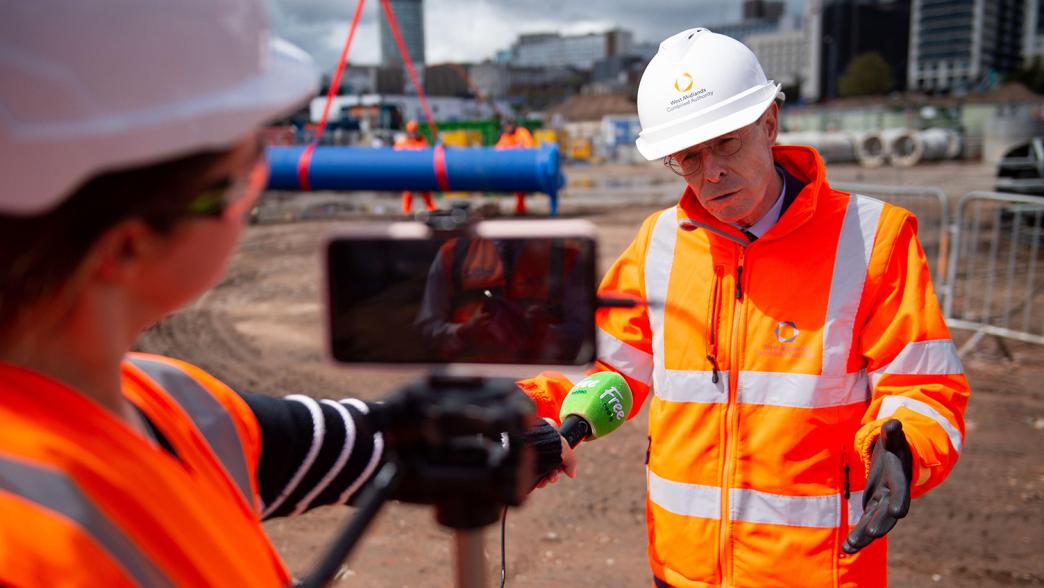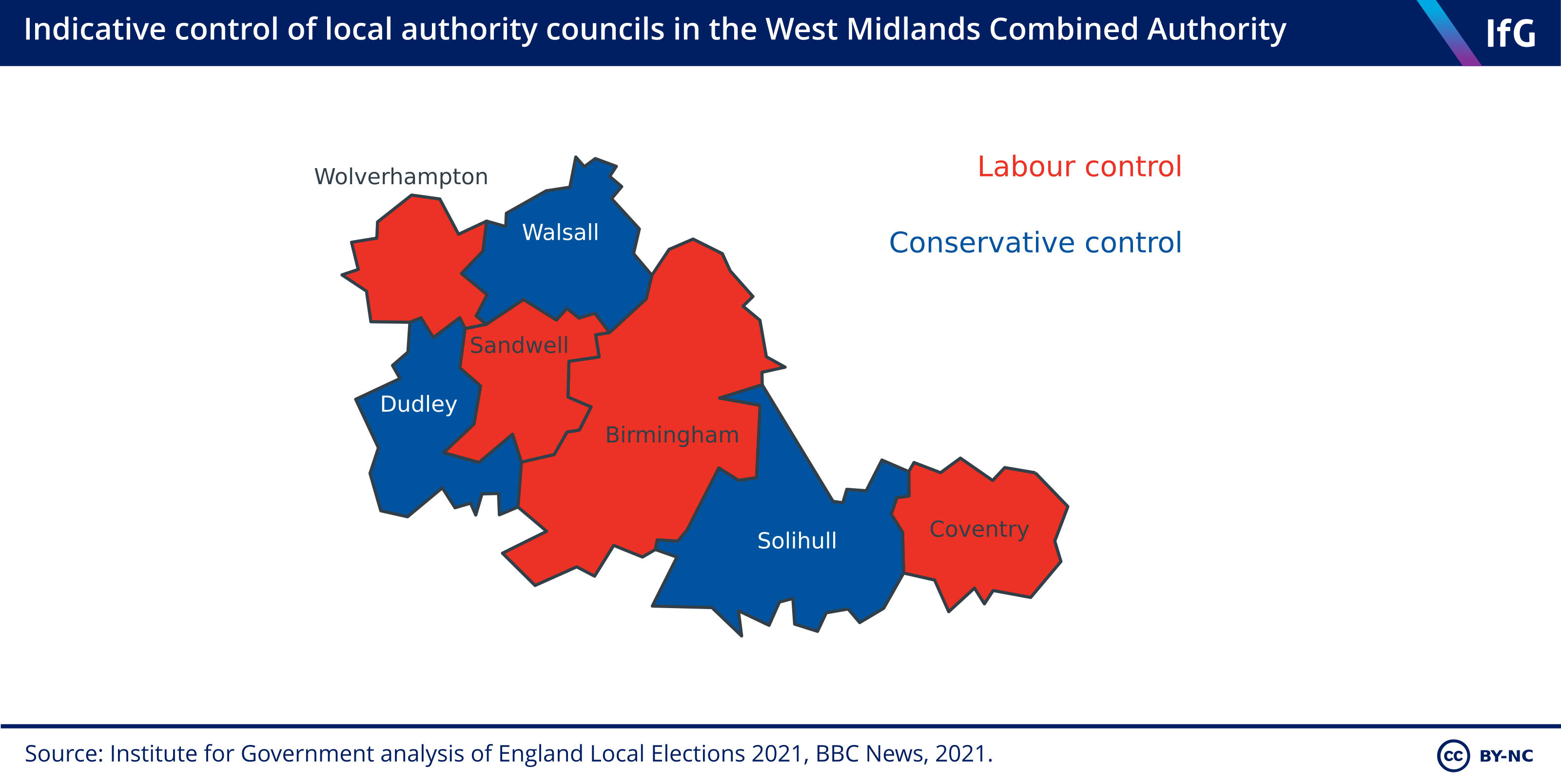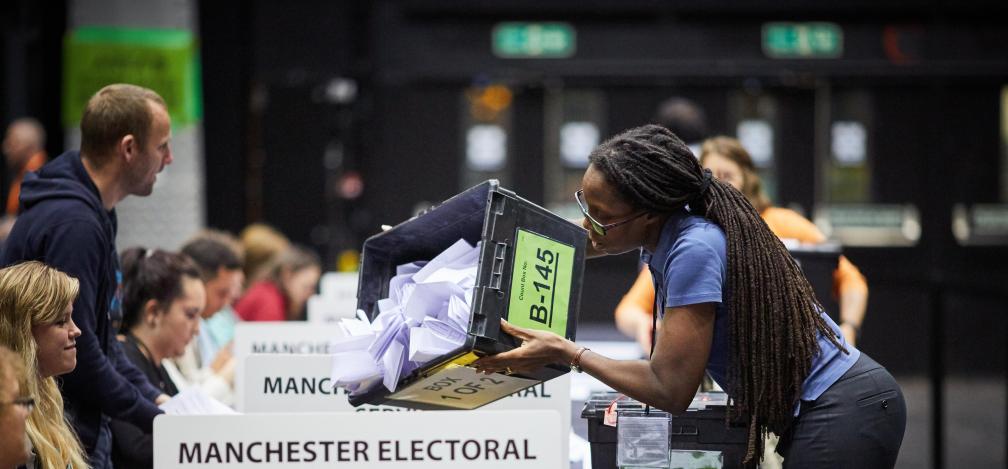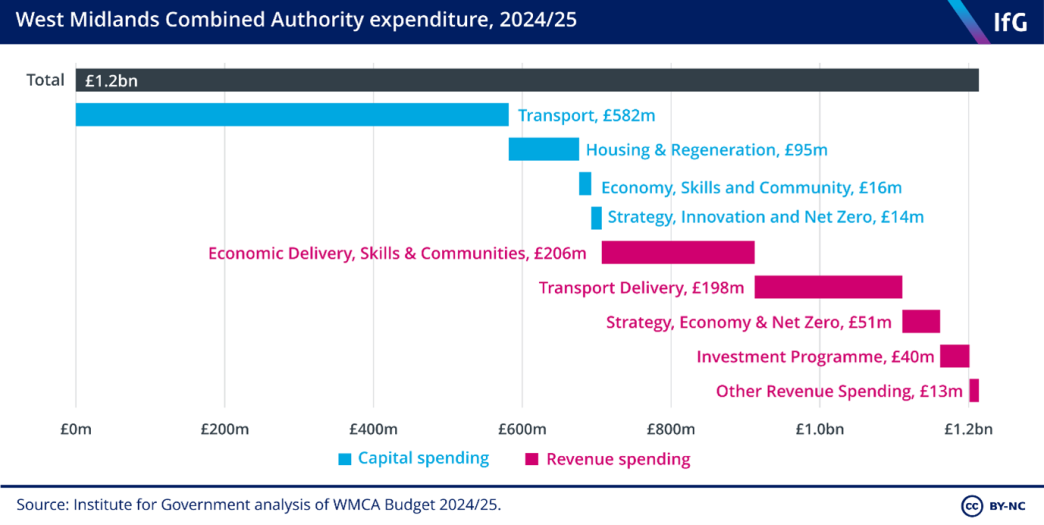Local elections 2024: Mayor of the West Midlands
On 2 May 2024, voters in Birmingham and six neighbouring local areas will vote to elect the mayor of the West Midlands.

On 2 May 2024, voters in Birmingham and six neighbouring local areas will vote to elect the mayor of the West Midlands. Incumbent Conservative mayor Andy Street is standing for the third time with Labour’s Richard Parker his main challenger.
What is the history of devolution to the West Midlands?
In November 2015, a ‘devolution deal’ was reached between the UK government and seven local council leaders in the West Midlands metropolitan area. This deal led to the creation of a new West Midlands Combined Authority led by a directly elected ‘metro mayor’.
WMCA was established as a legal entity in June 2016. Further devolution deals were reached between the government and WMCA in 2017 and 2023, when a ‘trailblazer’ deal was concluded.
What is the West Midlands Combined Authority?
As a combined authority, the WMCA has the ability to take certain collective decisions and exercise delegated functions that cross council boundaries.
The WMCA has eight members including the mayor, who chairs the authority, and leaders of the seven constituent authorities: Birmingham City Council, Sandwell Metropolitan Borough Council, Solihull Metropolitan Borough Council, Coventry City Council, Walsall Metropolitan Borough Council, Dudley Metropolitan Borough Council, and the City of Wolverhampton Council.
Local authority party control is split across the region: Labour controls four of the constituent councils, while the Conservatives hold the remaining three.

A further 10 neighbouring local authorities are non-constituent members, with fewer voting rights on WMCA decisions. The Local Enterprise Partnership (LEP) for Greater Birmingham and Solihull is also a non-constituent member and several other organisations ‘observe’ the WMCA with no voting rights.
The total population of the area covered by the WMCA is 2.9 million. Including the area covered by non-constituent local authorities, this rises to 4.7 million.
Who are the candidates for the May 2024 West Midlands mayoral election?
The mayor of the West Midlands is Andy Street. He represents the Conservative Party and was first elected in May 2017. He was re-elected in May 2021, receiving 49% of first-preference votes and 54% of votes in the second round, after first preference votes had been reallocated from unsuccessful candidates under the supplementary vote system. Street received his highest share of first-preference votes, 68%, in Solihull. His weakest support came from Birmingham, where he won 40%.
Street is standing for a third term in the 2 May 2024 election, which is taking place using the first-past-the-post vote system for the first time. The Labour party candidate is Richard Parker, previous a partner of PricewaterhouseCoopers, who was involved in the negotiation of the first West Midlands devolution deal. 13 Katie Neame, 'Richard Parker selected as Labour candidate for West Midlands mayor’ Labour List, 17 April 2023, retrieved 19 March 2024, www.labourlist.org/2023/04/richard-parker-selected-as-labour-candidate-for-west-midlands-mayor/.
The Liberal Democrats have selected Sunny Virk, a barrister and mediator. 14 BBC, ‘Lib Dems select West Midlands Mayor candidate’, BBC, 14 March 2024, retrieved 19 March 2024, www.bbc.co.uk/news/articles/cqe3mlnv6dno. Siobhan Harper-Nunes, the vice-chair of the Birmingham Race Impact Group, has been chosen as the Green Party candidate. 15 Alexander Brock, ‘Green Party announces candidate for West Midlands mayoral election this spring’, Birmingham Mail, 29 January 2024, retrieved 19 March 2024, www.birminghammail.co.uk/news/midlands-news/green-party-announces-candidate-west-28530747. Reform UK's candidate will be Elaine Williams, a solicitor. 16 BBC, ‘Reform UK picks candidate for West Midlands mayor’, BBC, 19 March 2024, retrieved 19 March 2024, www.bbc.co.uk/news/articles/crg4jyxyr1no. Akhmed Yakoob will be standing as an independent candidate.
Local and mayoral elections 2024
On Thursday 2 May, voters across England and Wales will head to the polls in a major set of mayoral and local elections. Keep up with our latest content, events and analysis on why these elections matter and the results when they come.
Find out more
What are the powers of the West Midlands mayor and combined authority?
The powers and responsibilities of the WMCA and metro mayor are focused on economic functions, including transport, adult skills, infrastructure, housing and business support.
The WMCA controls a consolidated, devolved transport budget, the local roads network, and has the power to introduce bus franchising. It is also responsible for the 19+ adult education budget, used to fund a range of training and skills programmes.
The WMCA works with constituent and non-constituent members on spatial planning and redevelopment of brownfield land, including by using compulsory purchasing powers to acquire land. However, formal planning powers rest primarily with individual local councils.
The WMCA controls a 30-year capital investment fund of £8 billion, subject to five-yearly reviews, which is invested in transport projects and other capital programs to increase regional productivity and growth.
The metro mayor has few executive powers that he can exercise unilaterally. In most cases, decisions of the WMCA must be approved by either a majority or two thirds of the WMCA members.
The West Midlands agreed a ‘trailblazer’ devolution deal with the government in March 2023, as did Greater Manchester. Once implemented, this deal will give WMCA further powers over post-19 skills, housing and regeneration, transport, and net zero.
The trailblazer deal will also reform WMCA’s funding model to treat it more like a government department, giving the combined authority more autonomy. Several funding streams will be consolidated into a single, non-ringfenced, settlement for each spending review period. In exchange, WMCA and the government will agree a “streamlined, overarching single accountability process” with specific outcomes for WMCA to achieve over each spending review period.
What is the WMCA’s budget?
In February 2024, WMCA agreed a balanced budget of £1.2bn for the 2024/25 financial year, split between £707m capital expenditure and a £507m revenue budget, for day-to-day spending.
A total of £582m (82%) of the planned capital budget is allocated to transport investments, including both WMCA-delivered projects and local authority projects supported by grants from the combined authority. Housing and regeneration (£95m) accounts for most of the rest of the planned capital spending.
The largest source of capital funding is central government grants, including the City Region Sustainable Transport Settlement, which alone accounts for £259m (37%) of planned capital spending in 2024/25. Borrowing by the combined authority will also contribute a substantial amount of funding.
As for the revenue budget, £404m (80%) of planned expenditure has been allocated to the categories of ‘transport delivery’ (£198m) and ‘economic delivery, skills and communities’ (£206m). Important sources of income include central government grants, including £142m for the adult education budget, and a total of £123m received as a transport levy paid by constituent authorities to the combined authority.

How does the WMCA compare to the rest of the UK in terms of social and economic outcomes?
The WMCA region (comprising the seven constituent local areas) lags behind the UK average in terms of key economic indicators such as labour productivity, gross median weekly pay and employment – though on each of these indicators at least one local area within the region performs better than the UK as a whole.
As a region, the WMCA also ranks below the UK average in terms of the skills of its population, male healthy life expectancy at age 65, and the share of the population that use public transport to get to work.
The region ranks above the UK average in terms of the proportion of private rented homes that meets the decent homes standard and the percentage of premises that are ready for gigabit broadband.
How does the WMCA area overlap with other administrative boundaries?
The WMCA region intersects in complex ways with other local administrative boundaries. It overlaps with three NHS Sustainability and Transformation Plans (STPs): Black Country and West Birmingham, Birmingham and Solihull, and Coventry and Warwickshire.
The WMCA region is coterminous with the West Midlands police force area. The mayor was due to take on the functions of the police and crime commissioner in May 2024, as is the case in Manchester and West Yorkshire, but this reform may now be delayed after a legal challenge to the process was upheld in March 2024.
- Topic
- Devolution
- Position
- Metro mayor
- English Regions
- West Midlands
- Combined authorities
- West Midlands Combined Authority
- Publisher
- Institute for Government